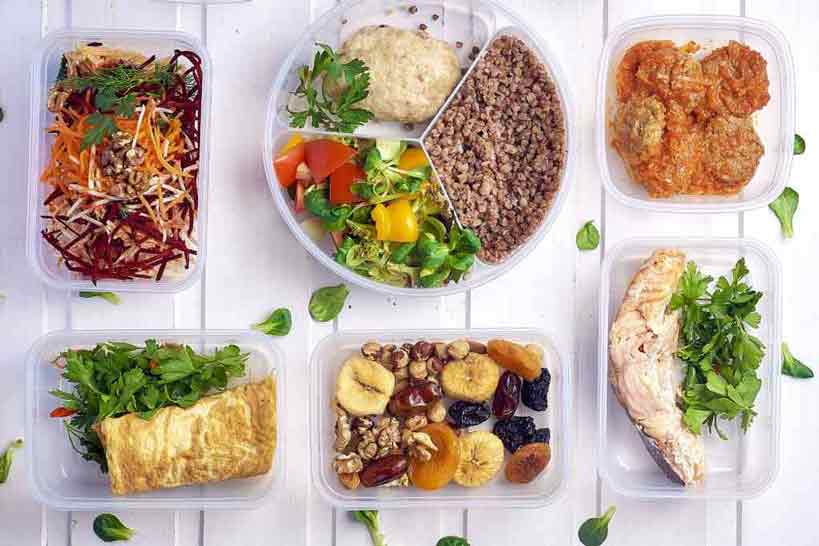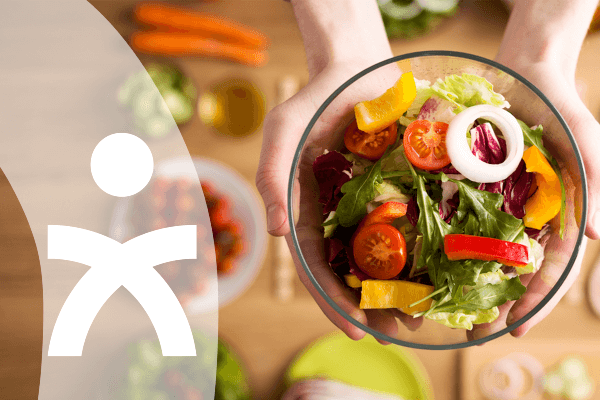Long-term diet after gastric bypass surgery: Building lasting habits for a healthier life
Why a long-term diet matters after gastric bypass surgery
Gastric bypass surgery can be a life-changing experience. It helps people achieve significant weight loss, but what comes next is just as important: maintaining that weight loss and ensuring the body gets all the nutrients it needs. A long-term diet after gastric bypass is key, not just for keeping the weight off, but also for promoting overall health and preventing complications that could arise from the surgery.
With a much smaller stomach, the types of foods you eat, the amounts, and how you eat them change drastically. You can’t eat the same way you did before. The focus shifts to smaller, nutrient-dense meals that your body can absorb more effectively. This change can seem challenging at first, but it’s all about building new habits that will support your new lifestyle.
Adjusting to a new diet after surgery isn’t just about cutting calories. It’s about finding the right balance of proteins, vitamins, and minerals that your body now needs in different amounts. Proper planning and understanding of what your body needs can make all the difference in staying healthy and avoiding issues like nutrient deficiencies.
Understanding the phases of diet post-surgery
The transition to a new way of eating after gastric bypass surgery happens gradually, allowing your body to heal and adapt to the changes. This journey has several phases, each designed to help your stomach recover and prepare you for a lifetime of healthier eating.
- Phase 1: Liquid Diet (Weeks 1-2)Right after surgery, the first thing your body needs is rest, and that means giving your digestive system a break. During the initial one to two weeks, you’ll be on a strict liquid diet. This might include clear broths, sugar-free gelatin, protein shakes, and other liquids like electrolyte drinks. The purpose is to keep you hydrated and provide some basic nutrients without putting any strain on your new, smaller stomach. It’s crucial to sip slowly and avoid gulping to prevent discomfort.
- Phase 2: Pureed Foods (Weeks 3-4)As you move into the third week, you’ll start adding pureed foods into your diet. This stage lasts about two weeks and includes anything you can blend into a smooth texture. Think of foods like blended lean meats, pureed vegetables, or scrambled eggs. Protein becomes a major focus during this time, helping to maintain muscle mass as you continue to lose weight. Aim for about 60 to 80 grams of protein a day, spread over small meals, to keep your body fueled without overwhelming your digestive system.
- Phase 3: Soft Foods (Weeks 5-8)By the fifth week, your diet can include soft foods like soft fruits (bananas or canned peaches), tender-cooked vegetables, and low-fat cottage cheese. This is when eating slowly really comes into play—chewing each bite thoroughly ensures that your stomach can handle the food without discomfort. Soft foods help bridge the gap between the pureed stage and regular eating while still being gentle on your digestive system. It’s a time to reintroduce texture, but remember to continue focusing on high-protein options.
- Phase 4: Transition to Solid Foods (Week 9 and Beyond)Around two months post-surgery, you’re ready to reintroduce solid foods. This phase is about finding a balance—adding in lean proteins like chicken breast, fish, or tofu, along with cooked vegetables, while avoiding raw, fibrous vegetables or tough meats that can be harder to digest. It’s all about listening to your body. Eating too much too quickly can lead to discomfort, so start with small portions and see how you feel. Aim for five to six small meals a day, each about the size of a cup, to keep hunger at bay without putting stress on your new stomach.
Choosing the right foods for long-term success
When it comes to long-term eating after gastric bypass, the focus is on foods that provide maximum nutrition in small amounts. The goal is to nourish your body without overloading it with empty calories that could cause weight regain.
- Protein-Packed ChoicesProtein is the cornerstone of your diet after surgery. It helps keep you full and maintains muscle mass as you lose weight. Incorporating protein-rich foods like chicken, turkey, fish, tofu, and eggs is essential. Greek yogurt and cottage cheese are great options too, providing a smooth texture that’s easy on your stomach. Protein shakes can be a helpful way to meet your protein goals, especially in the early stages. Think of it as building a diet around these foods to keep your body strong and energized.
- Non-Starchy VegetablesVegetables like zucchini, bell peppers, and spinach are great for adding vitamins and fiber without a lot of calories. These can be cooked and added to meals once your body can handle them, providing essential nutrients without adding too much bulk. Avoid raw veggies until your doctor gives the green light, as they can be tougher to digest.
- Healthy Carbs in ModerationWhole grains, such as quinoa, brown rice, and oatmeal, can be reintroduced in small portions. They offer fiber and slow-burning energy, which helps you feel full longer. But remember, these should be eaten in moderation, and focus should remain on protein and vegetables. For many people, keeping carbs low helps maintain their weight loss and prevents blood sugar spikes.
- Incorporating Healthy FatsHealthy fats are important for absorbing vitamins and keeping your heart healthy. Small amounts of avocado, olive oil, and nuts can add flavor to meals and help with satiety. Even though your stomach is smaller, these nutrient-dense options can help you get the most out of every bite. Just keep portion sizes in check—a few slices of avocado or a tablespoon of olive oil can go a long way.
Foods to avoid to stay on track
There are some foods that should be avoided after bariatric surgery to ensure your long-term success. Eating the wrong things can lead to digestive discomfort, unwanted weight gain, or other complications.
- Sugary Treats and DrinksFoods high in sugar, such as candies, cakes, and sweetened drinks, are no longer your friends. Consuming these can cause something known as “dumping syndrome,” where food moves too quickly through your digestive system, leading to nausea, cramps, and diarrhea. It’s best to stick with sugar-free options and naturally sweetened treats like fresh fruit. If you miss the sweetness, try a small piece of fruit or a sugar-free alternative, but avoid anything that could cause a blood sugar spike.
- Carbonated and Caffeinated BeveragesCarbonated drinks like soda can create gas and bloating, which can be especially uncomfortable with a smaller stomach. Caffeine, found in coffee and some teas, can also irritate the stomach lining and increase the risk of dehydration. It’s better to stick to still water, herbal teas, and low-calorie electrolyte drinks to keep yourself hydrated.
- Greasy and Fried FoodsHigh-fat foods, such as fried chicken, french fries, or potato chips, can be difficult to digest and can slow down your progress. These foods are high in calories but low in nutrients, making them a poor choice when your focus is on nourishing your body. Instead, opt for baked or grilled versions of your favorite foods.
- Tough Meats and High-Fiber Raw VegetablesTough cuts of meat like steak can be difficult for your new stomach to break down. High-fiber raw vegetables like broccoli, cauliflower, and celery can also cause discomfort early on. Cooking these vegetables until they’re soft or choosing lean, tender proteins can help avoid any issues.
Hydration and portion control: Key to long-term health
Staying hydrated and managing portion sizes are critical components of life after gastric bypass surgery. Given the smaller stomach size, even drinking water requires a new approach.
- Hydration TipsDrinking enough water is important, but because your stomach is smaller, it’s best to sip slowly throughout the day rather than drinking a lot all at once. Aim for at least 64 ounces of water daily. Avoid drinking fluids during meals, as this can make you feel full too quickly and prevent you from eating enough protein and other nutrients. Keep a water bottle handy, and take small sips regularly to maintain hydration without filling up your stomach too quickly.
- Mastering Portion ControlPortion control becomes even more crucial after surgery. The goal is to avoid overeating, which can stretch the stomach pouch over time. Using smaller plates and bowls can help keep portions in check. Measuring your food and sticking to recommended portion sizes ensures you’re not eating more than your new stomach can handle. A good rule of thumb is to aim for about half a cup to one cup of food per meal. Chew each bite slowly and take your time—this helps you recognize when you’re full and prevents overeating.
Why supplements are non-negotiable
After a gastric bypass, your body’s ability to absorb nutrients changes significantly, which makes vitamin and mineral supplements a lifelong necessity. The right supplements can prevent common deficiencies that can arise from the reduced intake and absorption of food.
- Choosing the Right MultivitaminA high-quality multivitamin is essential to cover your daily needs. Look for those specifically formulated for bariatric patients, as they contain higher levels of certain nutrients that you might not get from food alone. Vitamins A, D, E, and K are particularly important, as well as B-complex vitamins that support energy levels and overall health.
- Calcium and Vitamin D for Strong BonesCalcium citrate is usually recommended because it is easier for the body to absorb. Pairing it with vitamin D ensures that your body can actually use the calcium, which is critical for maintaining bone health. This is especially important after surgery, as you’re more at risk for osteoporosis due to lower calcium intake from food.
- Iron and Vitamin B12Iron supplements help prevent anemia, which is common after gastric bypass due to reduced absorption. It’s often taken separately from calcium for better absorption. Vitamin B12 is crucial for nerve function and red blood cell production, and many patients need to take it as a sublingual tablet or through injections since their body can no longer absorb it well through food.
Regular blood tests are a good way to monitor your levels and adjust your supplement routine as needed. Working closely with your healthcare provider ensures that you’re getting the right amounts of everything to stay healthy.
Staying motivated: Making your new diet a habit, not a chore
Sticking to a new diet can be tough, especially when old habits come creeping back. But with a few simple strategies, you can stay on track and even enjoy the process.
- Set Realistic MilestonesFocus on small wins—like fitting into a new pair of jeans, or being able to walk longer distances without getting tired. These milestones can be a powerful motivator and help keep you focused on your goals.
- Find Your Support SystemWhether it’s a local support group, an online forum, or close friends and family, having people who understand what you’re going through can make a big difference. Share your struggles, celebrate your wins, and lean on others for encouragement when you need it.
- Keep a Food JournalWriting down what you eat can help you stay accountable and track how certain foods make you feel. It also helps to see where you might be slipping up or where you’re doing well. A simple journal can make a world of difference in understanding your eating patterns.
- Plan and PrepPreparing meals in advance takes the guesswork out of eating and helps you avoid last-minute decisions that might derail your progress. Keep healthy snacks on hand, like nuts or a small portion of cheese, to prevent reaching for something less nutritious when hunger strikes.
Frequently asked questions about post-surgery diet
1. How long before I can eat regular food again?
Most people can begin introducing solid foods around 8 to 12 weeks after surgery, but it depends on how quickly you heal and adjust. Always follow your doctor’s advice.
2. What should I do if I feel nauseous after eating?
Nausea often means you’re eating too much, too fast, or not chewing well enough. Slow down and focus on eating smaller portions. It can also help to stick with foods that you know your stomach tolerates well.
3. Can I ever enjoy desserts again?
Yes, but in moderation. Focus on healthier alternatives like fresh fruits or sugar-free versions. If you want to indulge occasionally, make it a small portion and savor every bite. Just be mindful of how your body reacts and avoid anything that triggers discomfort.
Moving forward with a healthier lifestyle
Adjusting to a long-term diet after gastric bypass is about more than just following a set of rules—it’s about building a new way of living that feels sustainable and rewarding. Focusing on balanced meals, staying hydrated, and making smart choices allows you to maintain your weight loss and improve your overall quality of life. The road may have challenges, but with the right mindset and support, it’s a journey that leads to a healthier, happier you.






